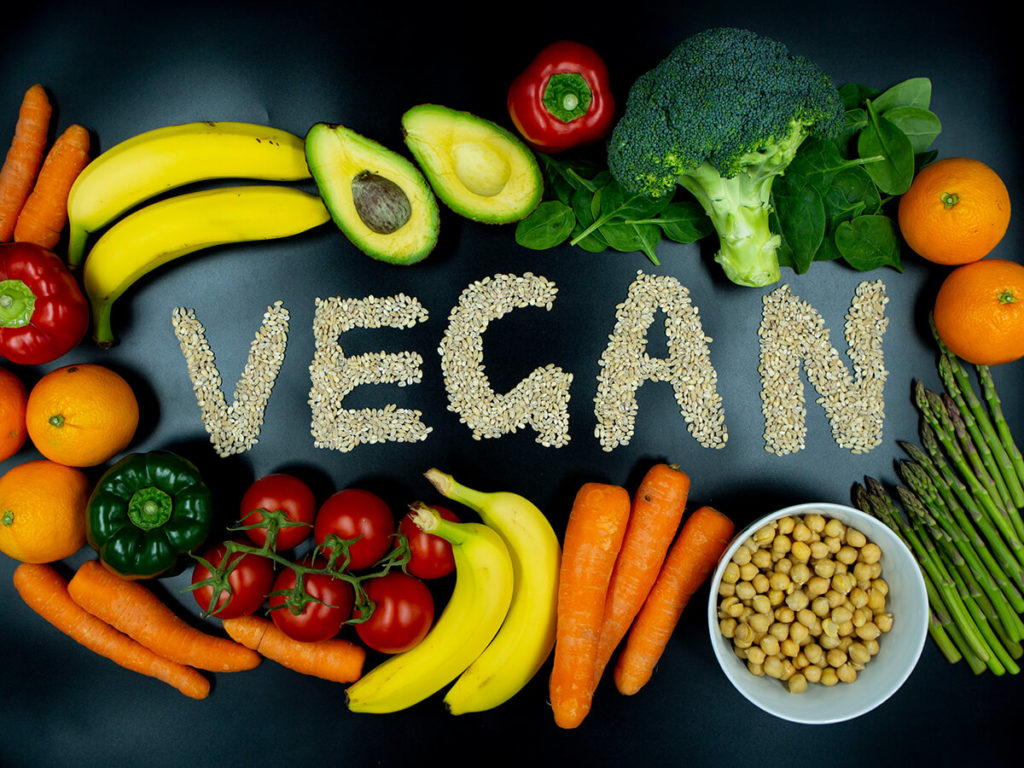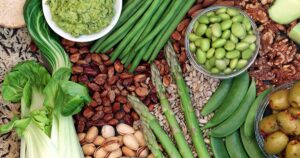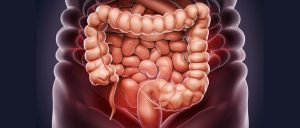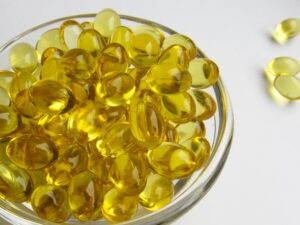 Hey all. I have noticed that there is a lot of misinformation regarding the nutritional adequacy of a 100% vegan diet, even among fellow senior-level dietetics students. I know a few vegans, and the most common nutritional concern is getting enough protein or iron. There are a few other minerals and vitamins that are hard to get, although not impossible, from a vegan diet. I am not going to discuss whether or not a vegan lifestyle reduces the risks of certain diseases, like cancer. I will talk about the relationship between a vegan diet and disease risk in a future blog. This blog will be a basic overview of how to get all the nutrients you need from a totally vegan diet.
Hey all. I have noticed that there is a lot of misinformation regarding the nutritional adequacy of a 100% vegan diet, even among fellow senior-level dietetics students. I know a few vegans, and the most common nutritional concern is getting enough protein or iron. There are a few other minerals and vitamins that are hard to get, although not impossible, from a vegan diet. I am not going to discuss whether or not a vegan lifestyle reduces the risks of certain diseases, like cancer. I will talk about the relationship between a vegan diet and disease risk in a future blog. This blog will be a basic overview of how to get all the nutrients you need from a totally vegan diet.
What does it mean to eat vegan?
Sometimes people confuse vegan and vegetarian diets. Some vegetarians eat dairy and eggs, some do not, but the common link is that none eat meat (chicken counts as meat). Vegans, on the other hand, eat no products coming from animals, which include dairy, cheese, and eggs. People choose to be vegan because they believe it is healthier, they feel it is morally wrong to eat animals, and they do not approve of the method by which animals are raised and slaughtered, or they believe it is better for the planet. Others are vegan because they denounce anything that is processed, which includes meat.
Nutritional concerns of a vegan diet
Some nutrients are more difficult to obtain from a vegan diet compared to a diet including meat and dairy. The good news is that a well-planned vegan diet will supply all the necessary vitamins and minerals without having to compromise one’s morals. Here are the most common nutritional issues with a vegan diet.
Vitamin D
Vitamin D really is difficult to obtain, even for meat eaters. Almost everyone I know that has been tested has been low in vitamin D. The problem is that few foods naturally contain vitamin D outside of certain fatty fish and cod liver oil. I am including vitamin D because it is a nutritional concern for everyone, not just vegans. Milk is not a natural source of vitamin D, but vitamin D is added to it. I would recommend taking vitamin D supplements or drinking beverages like soy or almond milk that have vitamin D added to them.
Calcium
Although dairy products are an excellent source of calcium, they are not the only source. Nowadays, soy milk, almond milk, orange juice, and others have vitamin D and calcium added to them, often in higher amounts than milk. If you consume beverages that have vitamin D and calcium added to them, you will not have a hard time meeting your daily requirements. If you do not consume these beverages, I would suggest taking calcium and vitamin D supplements, which are very cheap.
Vitamin B12
Vitamin B12 is the vitamin cited most frequently by people who believe vegan diets are dangerous. These people point to Vitamin B12 and say it can only be found in meat, so therefore, a vegan diet is fundamentally unhealthy. I have heard many people say this, even in my nutrition classes. Vitamin B12 is a very important water-soluble vitamin of the B vitamin family, which also includes vitamins B1, B2, B3, B5, B6, B7, and B9.
Many people are not aware that animals (including humans), plants, and fungi are not capable of producing vitamin B12, which means animal sources of vitamin B12 are only good sources because they have bacteria that produce the vitamin. If we can produce vitamin B12 from bacteria in a lab, it would be identical to the type found in animals. Well, almost identical. Clinical studies have shown that taking vitamin B12 supplements is sufficient to raise body levels of vitamin B12 and prevent deficiencies. Here is a chart listing the amounts of vitamin B12 in various foods.
| Food | Serving Size | Amount of B12 (mcg) | Percent Daily Value |
| Sardines | 3.20 oz | 8.11 | 338% |
| Tuna | 4 oz | 2.66 | 111% |
| Cheese | 1 oz | 0.24 | 10% |
| Beef | 4 oz | 1.44 | 60% |
| Cow’s Milk | 8 oz | 1.1 | 46% |
| Eggs | 1 egg | 0.55 | 23% |
| Turkey | 4 oz | 0.42 | 18% |
| Chicken | 4 0z | 0.39 | 16% |
As you can see, one would need to eat fish, beef, or milk daily to reach the recommended amount of vitamin B12. I will admit that vitamin B12 deficiencies are more common in vegetarians and vegans than in meat eaters, but this problem can be easily solved with a supplement. I usually do not recommend taking supplements, but in this case, it would be necessary. I do not believe that getting Vitamin B12 from beef is any healthier than getting it from a supplement; in fact, it may be less healthy if you are eating high-fat beef.
I found a study that compared dietary intake and vitamin B12 blood levels. Much to my surprise, they found that the B12 in milk raised blood levels greater than the same amount of B12 in meat. They found that milk and fish raised vitamin B12 levels significantly more than the same amount in meat and eggs. Boiling (pasteurization) of milk causes about a 30% loss of vitamin B12, and the milk used in the study was primarily drunk raw. It seems that vitamin B12 has an especially high bioavailability from milk, which is backed up by the low rates of vitamin B12 deficiency seen in vegetarians who consume milk but no meat. It appears that the vitamin B12 in meat is not as well absorbed as previously thought. It seems you do not need to consume meat to get your B12, but without dairy or fish, a supplement is necessary. I would suggest a sublingual (under the tongue) Vitamin B12 spray, such as Pure Vegan B12 Spray.
Iron
Another concern with a vegan diet is getting enough iron. Iron is found in two different forms: heme iron, which is found in meat, and non-heme iron, which is found in non-meat sources like plants. Heme iron is absorbed at much higher rates than non-heme iron. Contrary to popular belief, not all meat contains iron. In fact, only beef contains significant amounts of iron, which gives beef its red color.
You can increase the absorption of iron by consuming vitamin C with it. For example, eating an orange or kiwi with a food containing iron will help you absorb more iron from the food. Males need 8 mg a day, while females need 18 mg per day. Below is a chart comparing the iron content of various foods:
F = female, and M = male.
| Food | Mgs per serving | Daily Value % |
| Oysters – 3oz | 8 | 44% (F), 100% (M) |
| Lentils- cooked- 0.5 cups | 3 | 17% (F), 38% (M) |
| Beef liver- 3 oz | 5 | 28% (F), 63% (M) |
| Chicken – 3oz | 1 | 6% (F), 13% (M) |
| Turkey- 3 oz | 1 | 6% (F), 13% (M) |
| Spinach- 0.5 cups | 3 | 17% (F), 38% (M) |
| Pumpkin seeds | 4.2 | 23% (F), 53% (M) |
| Iron fortified breakfast cereals | 3.4-18 | 20-100% |
| Milk – 1 cup | 0 | 0% |
| Cheese -cheddar- 1.5 oz | 0 | 0% |
Low iron levels are more common in vegans than in those who eat meat. Since neither vegans nor vegetarians consume meat, and milk contains no iron, their iron levels are likely similar. Because of this and the fact that there are few studies assessing the iron levels of vegans, I will reference studies measuring the iron levels of vegetarians.
Although non-heme plant iron is less absorbed than heme iron, if we have low body stores of iron, the non-heme iron we eat will be absorbed just as well or better than heme iron. Our body closely regulates our iron stores, and when we need more, we absorb a higher than normal percentage from food. Unfortunately, vegetarian foods like beans, grains, and nuts contain chemicals that bind to and reduce iron absorption.
Although many studies have shown that vegetarians have lower iron stores than meat eaters, their rates of anemia are not different (anemia occurs when you don’t have enough oxygen carrying red blood cells). Having low but adequate iron stores may actually offer some health benefits, as high iron intake is weakly associated with heart disease and colorectal cancer risk.
Unless anemia is present, the recommendation to take iron supplements should be made on a person-to-person basis. Women are much more susceptible than men to low iron levels. The best strategy would be to try to meet your iron needs through a diet and get at least twice-yearly blood tests to measure your iron stores. If you cannot meet your iron needs through your diet, you will have to take iron supplements.
Zinc
Similar to iron, plant sources of zinc are not as well absorbed as animal sources, and vegans need to consume about 50% more dietary zinc than non-vegetarians because of the lower absorption rates. Plant sources of zinc include beans, nuts, and grains. A yearlong study found that people switching from a non-vegetarian to a vegetarian diet experienced a drop in serum and urinary zinc levels after three months but no further drop in levels after three months. The zinc levels of the subjects remained in the normal range.
A major problem with studying body stores of zinc is that we currently do not have sensitive enough tests to measure zinc status in individuals and must rely on body stores, which are insensitive to dietary changes in zinc and can take weeks or months to change from changes in diet. It appears, for now, that vegans have lower body stores of zinc compared to non-vegetarians but still have levels within the normal range. Since we do not have sensitive tests to measure zinc status, be sure to eat a variety of zinc-containing plant foods and track your intake using a food tracker such as chronometer or MyFitnessPal.
Trace elements (other than zinc and iron)
Trace elements include elements we need in very small amounts, such as copper, selenium, and manganese. Plant sources are rich sources of micronutrients, but their absorption may be inhibited by certain plant constituents, like phytates. Studies have shown that copper is absorbed at lower rates from plant foods, but plant foods contain overall higher amounts of copper, so the reduced absorption is offset by the high amounts of copper. Dietary selenium from a plant-based diet appears to be as well absorbed as that from a non-vegetarian diet. Since we need such small amounts of trace elements (copper requirements are only 0.900 mg/day) and because plants often contain double or triple the amount needed, it is unlikely that a vegan diet would result in deficiencies of these trace elements, even if their bioavailability from food is low.
Vegan protein supplements
It can be difficult to meet all of your protein needs when following a strict vegan diet. Since protein needs are determined by body weight, the more you weigh, the higher your protein needs will be. As I talked about in my protein blog (LINK), physically active people need about 1 gram per kg of body weight of protein. To convert weight in pounds to kilograms, just divide by 2.2.
So if you weigh 160 pounds, (160/2.2) = 72 kg. 72 x 1 gram per kg = 72 grams of protein per day. If you weigh 240 pounds, (240/2.2) = 109 kg. 109 x 1 gram per kg = 109 grams of protein per day. Unless you eat a lot of beans, it can be hard to meet your protein requirements since fruits and vegetables contain little to no protein. Luckily, there are a lot of great vegan protein supplements. I will start with the one I recommend most.
Pea protein
Pea protein powder is nearly a complete protein, and each scoop gives you about 24 grams of protein. As an added bonus, you also receive 35% of your daily iron requirement. There are unflavored pea protein powders and flavored powders like vanilla and chocolate. The flavored powders have a little bit of sugar and artificial sweeteners, but all types of pea protein are dairy and soy-free. Pea protein is a cheap and efficient way to help meet your protein needs. I recommend the NOW sports pea protein supplement because it is the cheapest. If you don’t mind spending more money, feel free to buy whatever you want.
Soy protein isolate
Soy protein is a complete protein, and each scoop gives about 20 grams of protein. Soy has been shown to reduce the risk of breast cancer in women (that was soybeans, although not soy protein isolate). I know some males who are worried because soy has estrogen (actually, it is phytoestrogen) and believe that if they consume too much, they will become feminine (this is untrue, as I will show in a future blog). It is unknown whether or not soy protein isolate has the same beneficial antioxidants as soybeans, on which most studies are based. Either way, it is a great source of complete protein.
Rice protein
Sprouted brown rice protein is also an option. Rice is not as complete a protein as soy or peas, though. The cheapest brand I found for rice protein is NAKED RICE protein powder. It is reasonably priced, but I would still choose pea or soy protein over rice.
Blood work
I have mentioned getting blood work to check your iron levels, but what other blood work should vegans get? I am going to leave out blood work that all people should get (such as cholesterol levels) and talk only about tests that vegans specifically should be getting. I found a website that talks about why vegans should get certain tests. The website is called http://renegadehealth.com/blog/2011/08/25/top-10-blood-tests-for-vegetarians-and-vegans.
I will just summarize the tests. If you want to know more information about each test, I suggest visiting the above website. You should get the following blood tests: ferritin levels, folic acid, homocysteine, iron-total and total iron binding capacity, MMA serum, and vitamin B12. Most of these tests are used to diagnose iron or vitamin B12 deficiency. I would suggest getting blood work at least twice a year to fix any deficiency before it has a chance to cause health problems.
Of course, ask your doctor what additional blood tests he recommends.
Discussion
A well-planned vegan diet offers many health benefits. This diet is naturally high in vitamins and fiber while being low in saturated fat, sodium, and cholesterol. Vegans tend to have lower cholesterol levels compared to non-vegans and lower rates of certain types of cancer. A vegan diet is also better for the environment, as fewer resources are wasted. Even if you don’t want to go completely vegan, you should incorporate a variety of fruits, vegetables, and beans into your diet. In a future blog, I will go into more detail about the benefits of a vegan diet. In the meantime, if you have any questions on this topic, feel free to leave a comment or email me!




Interesting. It answers a lot of the questions I had. Nice post!
Thanks for keeping up Bernal! If you have any other topics you want me to research let me know. I am always willing to research anything I don’t know much about.
Recently I had a lot of questions about meat eating involved in anti-doping controls in sports. What can cause for example a positive in this tests when you eat certain kind of meat etc…..I will be very interested in reading about this!
Regards!!
Hey Bernal. You know what, I have never heard of this! Do you mean a meat causing a test to come up as positive for steroid use? Like extra testosterone? Interesting. I did a quick google search and nothing came up. Tell me a bit more and I will see if I can find any studies about it.
I have noticed a vegan diet is getting more and more popular now. Supermarkets have a lot of vegan products, and on the street you see more vegan restaurants. I do want to go one day to one of these real and authentic vegan restaurants and try their food. It seems interesting.
I always thought that you get vitamin B12 from eating red meat, it is very interesting reading that sardines have 5 times more amount of B12 than beef.
Vegan diets are really really popular now. They have gotten progressively more popular since the 1970’s or 1980’s. Vegan restaurants are obviously great for vegans but a lot of ethnic food can also be made vegan. Indian food and Thai food for example. I never realized that sardines had more Vit B12 than red meat either. I learn just as much as you from doing these research articles!